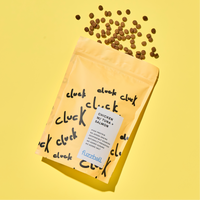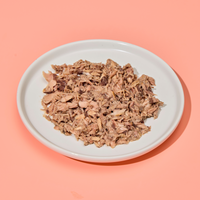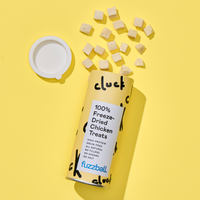How to Support Your Cat’s Digestive Health Through Diet

When your cat’s tummy isn’t happy, you’ll know about it. From occasional vomiting to unexpected litter box surprises, digestive problems can be just as stressful for you as they are for your cat. The good news is that your cat’s diet plays a major role in how comfortably their tummy works. The right food can keep their digestion smooth, prevent tummy upsets, and help them absorb all the nutrients they need to stay healthy and full of energy.
Why Is Digestive Health So Important for Cats?
A healthy digestive system does far more than just process food. It allows your cat to absorb essential nutrients, maintain a strong immune system, and keep their coat shiny and skin healthy. When your cat’s digestion isn’t working properly, it can lead to issues like bloating, diarrhoea, constipation, or even nutrient deficiencies.
Cats are obligate carnivores, which means their digestive tracts are short and designed specifically for breaking down animal protein. They aren’t built to digest large amounts of grains or fillers. That’s why feeding high-quality, meat-based food that mirrors what cats would eat in the wild is key to good digestive health.
What Are the Signs of Digestive Problems in Cats?
Digestive issues can show up in different ways depending on the cause. Some of the most common signs include:
- Frequent vomiting or regurgitation after meals
- Diarrhoea or loose stools
- Constipation or straining in the litter box
- Loss of appetite or sudden weight changes
-
Flatulence, bloating, or excessive licking of the belly
If your cat shows these signs regularly, it may be time to look at what they’re eating. Often, even small changes to their diet can make a big difference to how they feel.
How Does Diet Affect Digestion?
Everything your cat eats influences their digestive health. A diet that’s high in animal protein, moderate in fat, and low in carbohydrates is easiest for their stomach to handle. Real meat, such as chicken, tuna, or salmon, provides amino acids like taurine, which cats can’t produce on their own.
Avoid foods packed with artificial flavours, fillers, or grains. These ingredients can be hard to digest and may cause irritation over time. Cats also benefit from moisture-rich meals like wet food, which helps keep them hydrated and makes it easier for food to move smoothly through their digestive system.

What Nutrients Support a Healthy Gut?
Certain nutrients play a vital role in keeping your cat’s digestive system balanced.
|
Nutrient or Element |
Why It Matters |
Best Sources |
|
Builds tissue, supports metabolism, and is easy to digest |
Chicken, salmon, tuna |
|
|
Healthy fats |
Support energy and nutrient absorption |
Salmon oil |
|
Fibre |
Regulates digestion and helps prevent constipation |
Pumpkin, a natural plant fibre |
|
Moisture |
Prevents dehydration and aids digestion |
Wet cat food |
Feeding a diet rich in these components helps promote smoother digestion and better nutrient uptake.
Should Cats Eat Wet or Dry Food for Better Digestion?
Both wet and dry cat food can have a place in your cat’s diet, but moisture content is the key difference. Cats naturally have a low thirst drive, so they don’t always drink enough water on their own. Wet food provides extra hydration, which helps soften stools and supports kidney health.
Dry food can be convenient and great for dental maintenance, but it’s important to balance it with moisture-rich meals. A combination of both is often the best approach; the crunch of dry kibble with the hydration of wet food creates an ideal balance for digestion.
How Often Should You Feed Your Cat?
Cats are designed to eat small, frequent meals. In the wild, they would hunt several times a day, eating little and often. Feeding your cat in a similar way supports natural digestion and prevents stomach overload.
If you feed your cat once or twice a day, try splitting their meals into smaller portions. Automatic feeders or feeding puzzles can help space meals throughout the day, encouraging slower eating and better digestion. Feeding puzzles also adds mental stimulation, which reduces stress, another common cause of tummy troubles.

Can Stress Affect Digestion?
Absolutely. Cats are sensitive creatures, and stress can quickly upset their stomachs. Changes in routine, new pets, loud noises, or even moving furniture can cause anxiety, leading to loss of appetite or diarrhoea.
To reduce stress, feed your cat in a quiet, consistent space. Keep meal times regular and avoid sudden diet changes. If you need to switch foods, do it gradually over a week to help their digestive system adapt.
How Can You Support Digestive Health Every Day?
Here are a few simple steps to help keep your cat’s digestive system happy:
- Choose high-quality, meat-based food with no fillers
- Add wet food or fresh water sources for extra hydration
- Feed smaller, more frequent meals
- Introduce new foods gradually
- Keep mealtimes calm and consistent
-
Encourage gentle activity after eating to aid digestion
By building these habits into your cat’s daily routine, you’ll reduce the risk of tummy upsets and keep their gut balanced.
A healthy gut means a healthier, happier cat. With the right diet and a calm feeding routine, you can support smoother digestion, stronger immunity, and better overall well-being. Every cat is different, so it’s worth paying attention to how yours reacts to certain foods and making small adjustments along the way.




